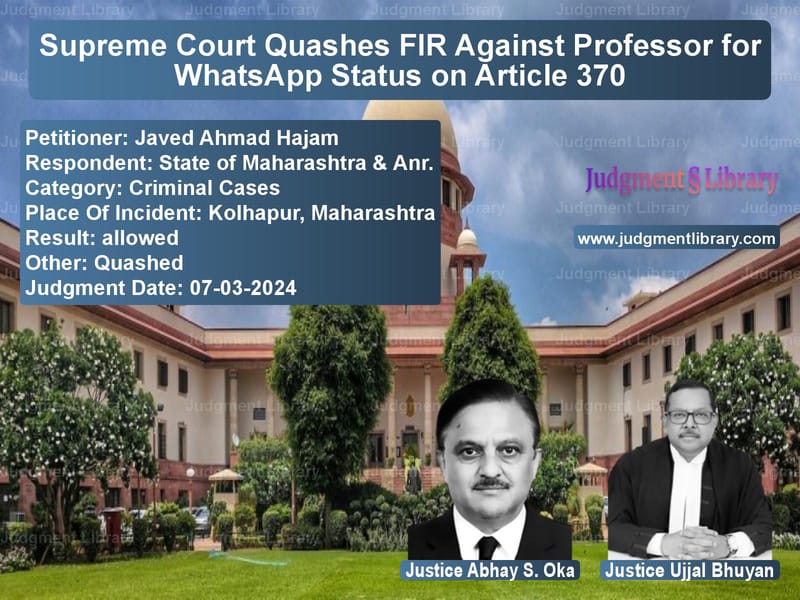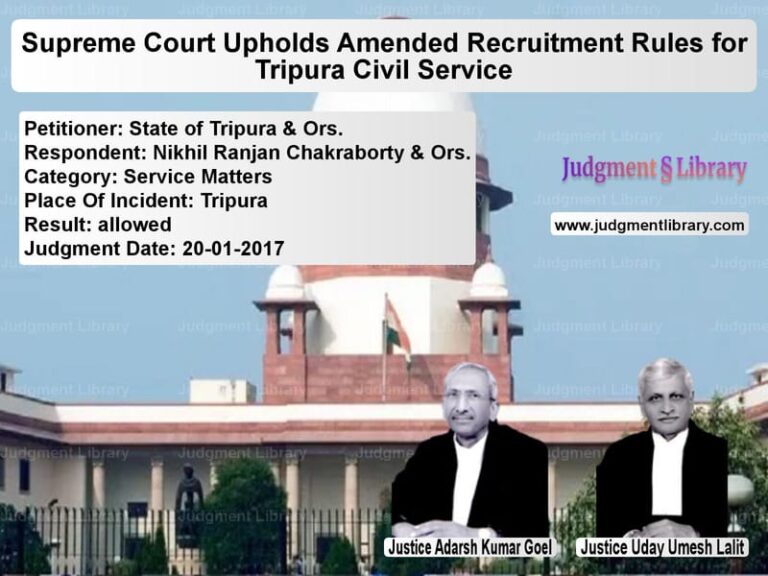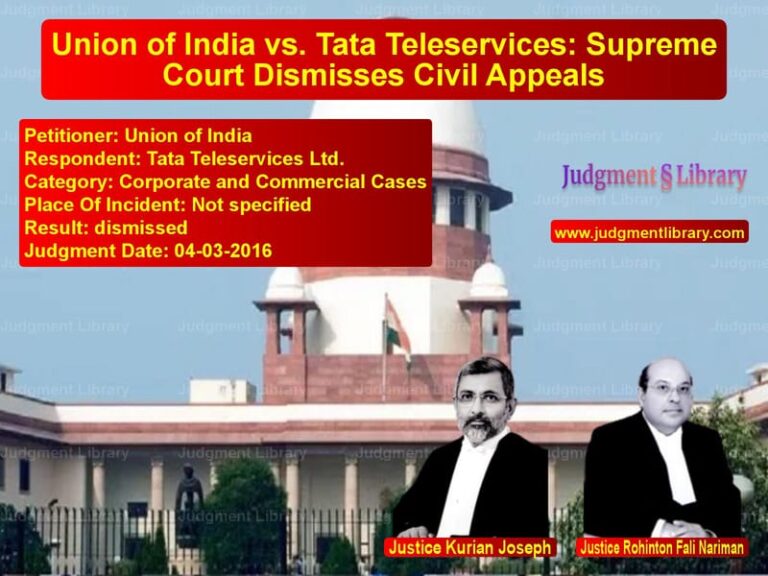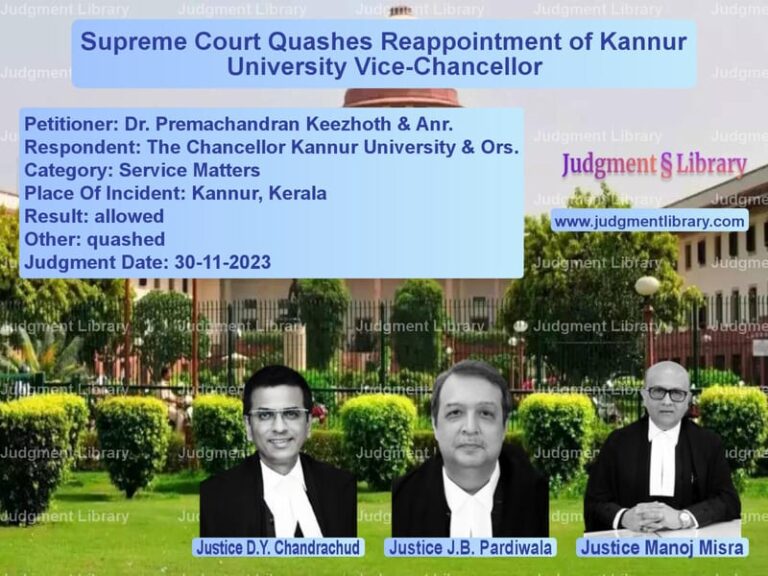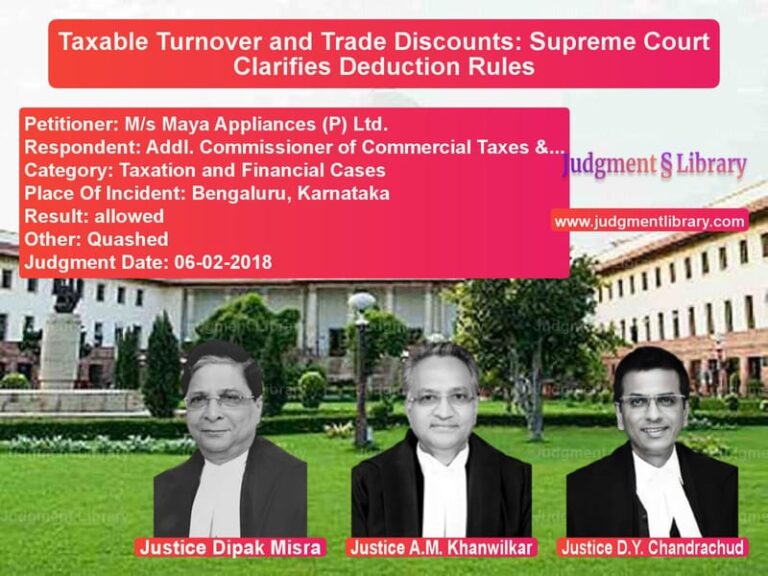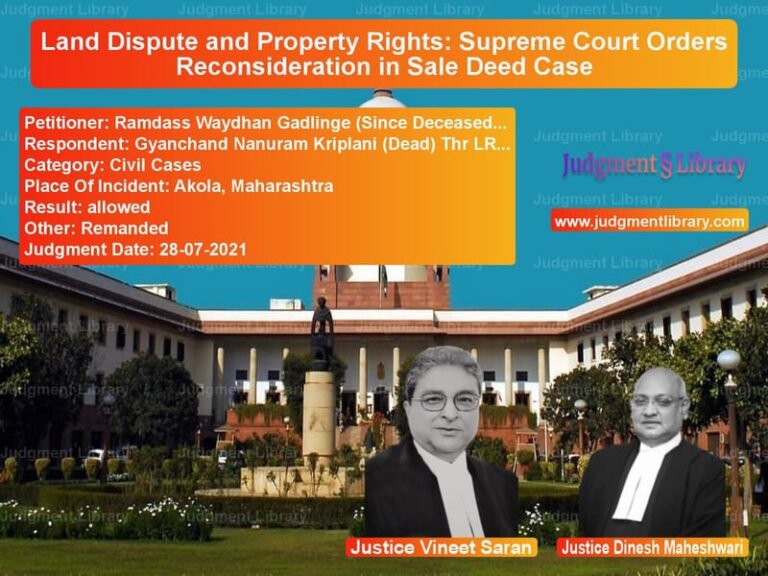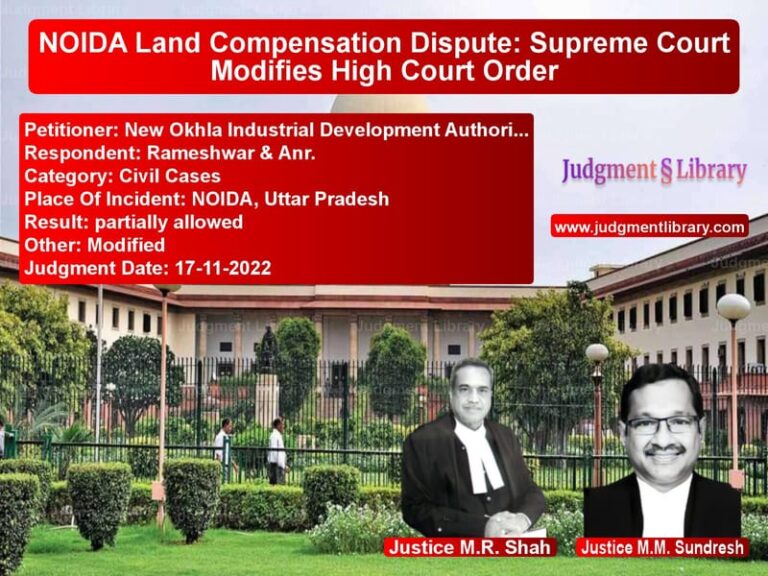Supreme Court Quashes FIR Against Professor for WhatsApp Status on Article 370
The Supreme Court of India recently delivered a crucial judgment in Javed Ahmad Hajam vs. State of Maharashtra & Anr., ruling in favor of free speech and quashing an FIR against a college professor who had posted a WhatsApp status expressing his views on the abrogation of Article 370. The judgment reinforces the importance of protecting free speech under Article 19(1)(a) of the Constitution and prevents the misuse of Section 153-A of the IPC.
Background of the Case
The case originated when an FIR was filed against Javed Ahmad Hajam, a professor at Sanjay Ghodawat College in Kolhapur, Maharashtra. Hajam, a native of Baramulla, Kashmir, was accused of posting the following WhatsApp statuses:
- “August 5 – Black Day Jammu & Kashmir.”
- “14th August – Happy Independence Day Pakistan.”
- “Article 370 was abrogated, we are not happy.”
These posts led to an FIR under Section 153-A of the Indian Penal Code, which criminalizes promoting enmity between different religious, racial, or linguistic groups.
Legal Issues
- Whether the WhatsApp status updates posted by the appellant constituted an offense under Section 153-A IPC.
- Whether expressing dissent against government policy amounts to promoting enmity between different groups.
- Whether the High Court erred in allowing the prosecution to continue despite a lack of prima facie evidence.
Arguments by the Appellant (Javed Ahmad Hajam)
Hajam’s legal counsel argued that:
- His posts were a form of peaceful expression and protest, which are protected under Article 19(1)(a) of the Constitution.
- There was no intent to incite violence or hatred against any community.
- Criticizing the abrogation of Article 370 is a legitimate political expression and does not fall within the scope of Section 153-A.
- The FIR was an attempt to curb dissent and misuse criminal law against peaceful expression.
Arguments by the Respondent (State of Maharashtra)
The State of Maharashtra contended that:
- The WhatsApp posts could have stirred public sentiments and created disharmony.
- The impact of the words on society needed to be determined through trial.
- Even if the posts did not explicitly call for violence, they could provoke disharmony.
Supreme Court’s Observations and Judgment
1. No Mens Rea (Criminal Intent) to Promote Enmity
The Supreme Court emphasized that an offense under Section 153-A IPC requires a deliberate attempt to create disharmony. The Court ruled:
“The alleged objectionable words or expressions used by the appellant, on its plain reading, cannot promote disharmony or feelings of enmity, hatred or ill-will between different religious, racial, language or regional groups or castes or communities.”
2. Dissent and Political Protest Are Fundamental Rights
The Court reaffirmed that criticizing government policies is a fundamental right:
“Describing the day the abrogation happened as a ‘Black Day’ is an expression of protest and anguish. If every criticism or protest of the actions of the State is to be held as an offense under Section 153-A, democracy, which is an essential feature of the Constitution of India, will not survive.”
3. No Public Disorder Was Caused
The Court noted that there was no evidence that the posts led to violence or public disorder:
“The test to be applied is not the effect of the words on some individuals with weak minds or who see a danger in every hostile point of view. The test is of the general impact of the utterances on reasonable people who are significant in numbers.”
4. Celebrating Another Country’s Independence Is Not a Crime
The Court dismissed the claim that wishing Pakistan on its Independence Day constituted an offense:
“Every citizen has the right to extend good wishes to the citizens of the other countries on their respective independence days. If a citizen of India extends good wishes to the citizens of Pakistan on 14th August, which is their Independence Day, there is nothing wrong with it.”
5. Police Must Be Educated on Free Speech Rights
The Supreme Court criticized law enforcement agencies for misusing criminal law:
“Now, the time has come to enlighten and educate our police machinery on the concept of freedom of speech and expression guaranteed by Article 19(1)(a) of the Constitution and the extent of reasonable restraint on their free speech and expression.”
6. Final Ruling
The Supreme Court quashed the FIR and allowed the appeal:
“The impugned judgment of the High Court is set aside. The FIR bearing No. 295 of 2022 registered at PS Hatkanangle, District Kolhapur, Maharashtra, and the proceedings based on the impugned FIR are quashed.”
Implications of the Judgment
This ruling has significant implications:
- Reinforces free speech protections: Ensures that peaceful political expression is not criminalized.
- Prevents misuse of Section 153-A: Authorities cannot file cases for expressions that do not incite violence.
- Strengthens democratic values: Encourages open debate on government actions.
- Limits frivolous prosecutions: Protects individuals from undue harassment for expressing opinions.
The judgment is a landmark ruling in protecting free speech and preventing the criminalization of political dissent in India.
Petitioner Name: Javed Ahmad Hajam.Respondent Name: State of Maharashtra & Anr..Judgment By: Justice Abhay S. Oka, Justice Ujjal Bhuyan.Place Of Incident: Kolhapur, Maharashtra.Judgment Date: 07-03-2024.
Don’t miss out on the full details! Download the complete judgment in PDF format below and gain valuable insights instantly!
Download Judgment: javed-ahmad-hajam-vs-state-of-maharashtra-supreme-court-of-india-judgment-dated-07-03-2024.pdf
Directly Download Judgment: Directly download this Judgment
See all petitions in Criminal Defamation
See all petitions in SC/ST Act Case
See all petitions in Judgment by Abhay S. Oka
See all petitions in Judgment by Ujjal Bhuyan
See all petitions in allowed
See all petitions in Quashed
See all petitions in supreme court of India judgments March 2024
See all petitions in 2024 judgments
See all posts in Criminal Cases Category
See all allowed petitions in Criminal Cases Category
See all Dismissed petitions in Criminal Cases Category
See all partially allowed petitions in Criminal Cases Category

